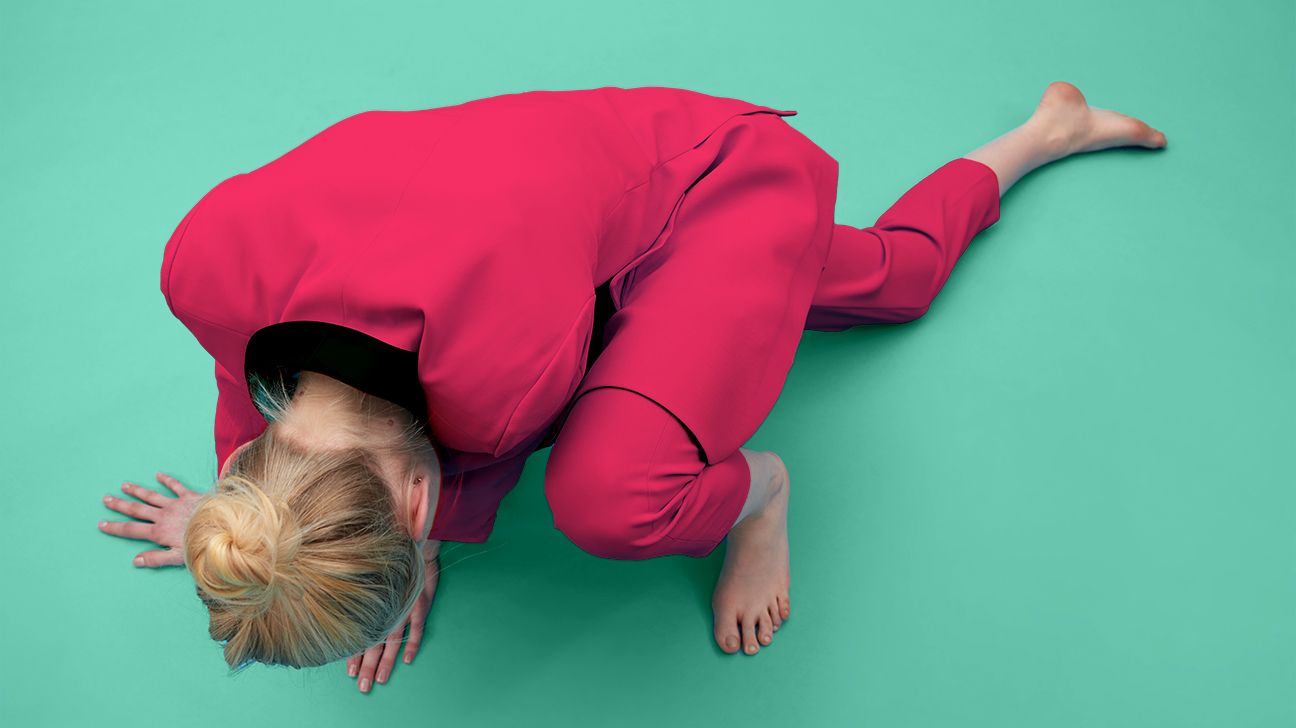Day one of your period, and your lower back hurts like a mother. Knowing that more than half of all women have pain during their periods probably isn’t enough to help you feel better. So what can you actually do to get relief ASAP?
Here’s why it happens — and what you can do to stop it.

Period-related pain, technically called dysmenorrhea, doesn’t just cause the typical abdominal cramps.
It can also make your back and even thighs achy, or lead to headaches, nausea, diarrhea, and fatigue. (FUN.) For that, you can thank prostaglandins — hormone-like substances made by your uterus that reach an all-time high right when your period kicks off.
Once you start bleeding, the prostaglandins (along with the rest of what built up in your uterus lining) start to shed. That’s why your back might feel the worst right as your period hits, and hopefully get less uncomfortable within a day or 2.
Period back pain can affect anyone, but it might be more intense if your periods tend to be heavier or if you’re under 30. (Good to know: It often eases up after having a baby.) Conditions like endometriosis, fibroids, or adenomyosis can also make dysmenorrhea worse.
You shouldn’t have to dread a day or 2 of back pain every month. And thankfully, you don’t have to. There are lots of options for easing the ache, and at-home remedies and meds can both make a difference.
Get moving
Exercise can actually help clear those pain-causing prostaglandins out of your system faster. Plus, it helps boost the production of feel-good endorphins and lowers stress, which can go a long way toward helping you feel better overall.
Research suggests aiming for at least 30 minutes of aerobic exercise three times a week, but more definitely won’t hurt. Want to go the extra mile? Add a few lower back strengtheners onto your routine.
Or get a massage
It’s been shown to ease period pain in women with endometriosis, but definitely worth trying even if you’re endo-free. Because… what do you have to lose?
Hang out with heat
Warmth increases blood flow to relieve pain, as well as ease muscle stiffness. And it’s a proven period pain fighter. Try applying a heating pad for 15 to 20 minutes, or better yet, soak it out in a long, hot bath.
Take a chill pill
If it helps you relax and unwind, it’ll likely make your back feel a little better. Deep-breathing exercises, yoga, and mindfulness meditation have all been shown to improve pain (or at least, the perception of pain, which is what really counts here), so take your pick.
Cancel cocktail hour
Alcohol tends to make period pain worse, so steer clear until your back is back to its regular self. Fancy one of these booze-free options?
Take a pain reliever
When lifestyle changes don’t cut it or you need relief fast, basic over-the-counter (OTC) NSAIDs can help.
These pain relievers (which include ibuprofen and naproxen) are anti-inflammatories that actually block prostaglandins, so they’ll definitely make you more comfortable.
It’s not really worth trying to tough it out before taking them though. You’ll actually get the best results when you dose up at the first sign of pain.
Note: If you have a history of (or currently have) stomach ulcers you’ll want to steer clear of NSAIDS.
Consider birth control
Any method containing hormones like estrogen and progestin (or just progestin alone) can be used to manage period pain. That includes the pill, the patch, IUDs, vaginal rings, birth control plants, and injections.
A mild backache in the first 1 to 2 days of your period isn’t exactly fun, but it’s also not a big deal health-wise. But you should def talk with your doc if you’re dealing with severe pain or cramps that drag on for more than 2 or 3 days, or if the pain you’re having is intense enough to stop you from doing your normal activities.
It’s also worth looping in your doctor if the bleeding just seems intense, especially since period backaches tend to be worse when you’ve got a heavier flow. Your period might be abnormally heavy if:
- You’re soaking through one or more pads or tampons every hour for several hours in a row, or you have to wear two pads at once.
- You have to change your tampon or pad in the middle of the night.
- Your period drags on for more than 7 days.
- You pass clots that are bigger than a quarter.
- You’re super tired, low energy, or short of breath.
Some back pain can be par for the course when your period first starts. But it *should* be manageable, either with at-home methods or meds.
If the pain is super bad or feels like its getting in the way of your life, definitely bring it up with your doctor. Together, you can figure out a strategy for making your periods less painful.

